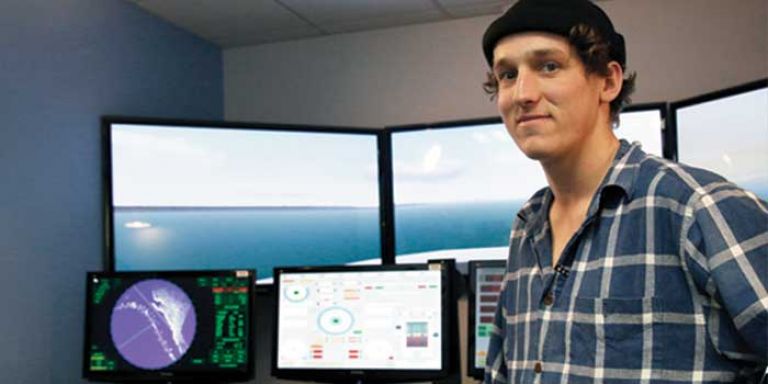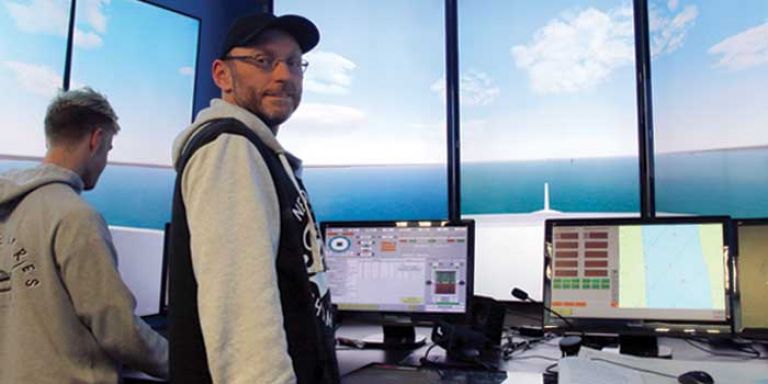Modular intakes for this programme mean you can start scheduled courses during the year.
Domestic students: Please contact our Ask Me! Student Services team.
International students: Please contact our International team for more information.
Programme highlights
Want to work on a commercial or fishing vessel in New Zealand or international waters?
This programme is for you if you are working in industry and want to progress to Mate Fishing Vessel or Watchkeeper Deck under 500 gross tonnage (GT).
You will learn how to work safely onboard a commercial or fishing vessel and gain an understanding of navigational operations, compliance and legislative requirements, and emergency response procedures.
Choose your strand. Study watchkeeping, fishing, or both.
Watchkeeping strand: Study watchkeeping if you want to work onboard commercial vessels.
Fishing strand: Study the fishing strand if you want to operate as a mate on 24–45 metre vessels, operating within coastal and offshore limits.
Entry requirements
General
Open entry for domestic students
There are no academic requirements that need to be met to enter this programme.
English language entry requirements
Applicants must have sufficient competence in the English language to undertake this programme, which is taught and assessed in English.
Any applicant whose first language is not English may be required to provide evidence of their English language competency.
International students: English language entry requirements
For the minimum English language requirements refer to the requirements set out in the NZQF Programme and Accreditation Rules.
International students will generally be required to provide evidence of English language proficiency, for this programme an IELTS General or Academic score of 5.5 with no band score lower than 5 is required. Equivalent acceptable evidence can be seen at the following NZQA link.
Important information
Entry to this qualification is open but completion does not guarantee the award of a Maritime New Zealand licence.
All persons wishing to qualify for a seafarer licence must also check the Maritime New Zealand prior certification and minimum service requirements for that licence. Also: Seafarers Framework which outlines medical fitness requirements and Maritime New Zealand Part 34: Medical Standards.
Give yourself credit with Recognition of Prior Learning (RPL)
Did you know you can use the knowledge and experience you already have to your advantage?
Your previous work experience and on-the-job skills, volunteering, professional development, and other providers’ qualifications can be recognised as prior learning, matched against credits in our courses, and put towards your qualification – potentially saving you money and possibly helping you to complete your qualification faster Learn more.
Programme structure
You will need to complete 12 compulsory courses and the courses related to your chosen strand (120 credits):
Compulsory courses
Level 2
Level 4
Courses related to your chosen strand
Fishing strand
Watchkeeping strand
Do you want to study a single course, without enrolling into the full programme?
Courses within some of our programmes may be offered as an individual Certificate of Proficiency (COP). Programme entry requirements and course fees apply. For more information, please speak to our friendly Ask Me! team.
Further training or study
New Zealand Certificate in Maritime Operations (Level 5)
Career opportunities
Watchkeeping strand: Work as a watchkeeper deck <500GT in near coastal areas on passenger and non-passenger vessels.
Fishing strand: Work as a Mate Fishing Vessel – Limited on fishing vessels.












